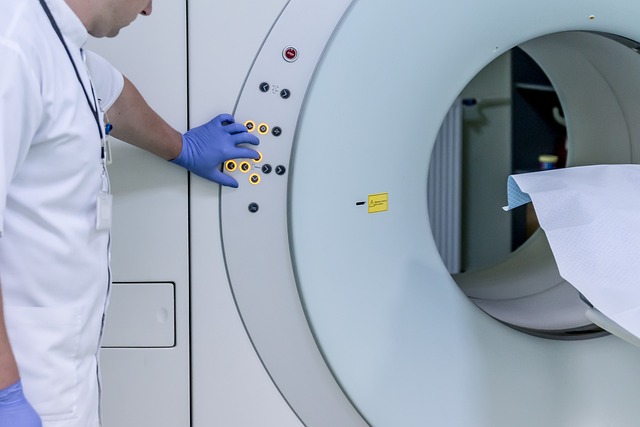MRI anxiety is a common experience for many people who need to undergo magnetic resonance imaging (MRI) scans. MRI is a medical imaging technique that uses strong magnetic fields and radio waves to produce detailed images of the body’s internal structures.
While MRI scans are generally safe and painless, they can be intimidating for some people, especially those who have a fear of enclosed spaces or loud noises.
MRI anxiety can cause physical and psychological symptoms that can make the procedure more difficult to tolerate. It is important to address MRI anxiety to ensure that patients receive the medical care they need without unnecessary stress or discomfort.
Causes of MRI Anxiety
 There are several factors that can contribute to MRI anxiety. One of the most common causes is a fear of enclosed spaces, also known as claustrophobia. The narrow tube-like structure of an MRI machine can trigger feelings of panic and claustrophobia in some people. Another common cause of MRI anxiety is a fear of loud noises. The loud banging and thumping sounds produced by an MRI machine can be overwhelming for some patients, especially those with sensory sensitivities.
There are several factors that can contribute to MRI anxiety. One of the most common causes is a fear of enclosed spaces, also known as claustrophobia. The narrow tube-like structure of an MRI machine can trigger feelings of panic and claustrophobia in some people. Another common cause of MRI anxiety is a fear of loud noises. The loud banging and thumping sounds produced by an MRI machine can be overwhelming for some patients, especially those with sensory sensitivities.
Fear of the unknown can also contribute to MRI anxiety. Patients may feel anxious about what will happen during the procedure, how long it will take, and what the results will reveal. Previous negative experiences with medical procedures can also increase anxiety levels for some patients.
Symptoms of MRI Anxiety
MRI anxiety can cause both physical and psychological symptoms. Physical symptoms may include sweating, rapid heartbeat, shortness of breath, nausea, and dizziness. Psychological symptoms may include panic attacks, feeling overwhelmed or out of control, and difficulty concentrating.
Coping Strategies for MRI Anxiety
There are several coping strategies that patients can use to manage their anxiety before and during an MRI scan. One effective strategy is preparation before the procedure. Patients should talk to their healthcare provider about any concerns they have and ask questions about what to expect during the scan. They can also ask for a tour of the MRI facility to become familiar with the equipment and environment.
Distraction techniques can also be helpful during the procedure. Patients can bring music or audiobooks to listen to during the scan, or they can use visualization exercises to imagine themselves in a calm and peaceful place. Positive self-talk can also be effective, such as reminding oneself that the procedure is safe and necessary for their health.
Relaxation Techniques for MRI Anxiety
Relaxation techniques can be used before and during an MRI scan to help manage anxiety. Deep breathing exercises can help slow down the heart rate and reduce feelings of panic. Progressive muscle relaxation involves tensing and relaxing different muscle groups in the body to release tension and promote relaxation. Guided imagery involves visualizing calming scenes or experiences, such as a beach or a favorite vacation spot. Mindfulness meditation involves focusing on the present moment and accepting thoughts and feelings without judgment.
Cognitive Behavioral Therapy for MRI Anxiety
Cognitive behavioral therapy (CBT) is a type of talk therapy that can be effective in treating anxiety disorders, including MRI anxiety. CBT focuses on identifying negative thought patterns and replacing them with more positive and realistic ones. Patients learn coping skills and strategies to manage their anxiety, such as relaxation techniques, exposure therapy, and cognitive restructuring.
Seeking Professional Help for MRI Anxiety
If coping strategies are not effective in managing MRI anxiety, it may be time to consider seeking professional help. A mental health professional, such as a therapist or psychologist, can provide additional support and guidance in managing anxiety symptoms. Treatment options may include medication, CBT, or other forms of therapy.
MRI scan anxiety is a common experience for many patients undergoing medical imaging procedures. It is important to address this anxiety to ensure that patients receive the medical care they need without unnecessary stress or discomfort. Coping strategies such as preparation, distraction techniques, and relaxation techniques can be effective in managing MRI anxiety. Seeking professional help may also be necessary for some patients. By addressing MRI anxiety, patients can improve their overall health and well-being.








